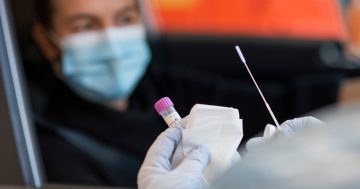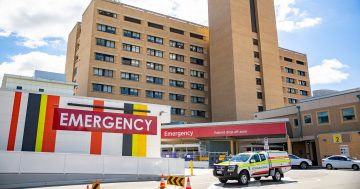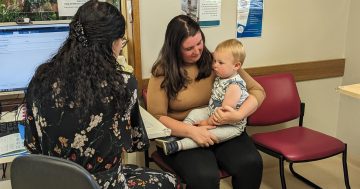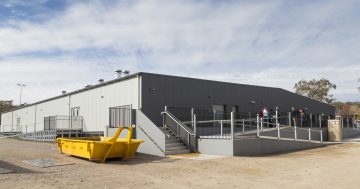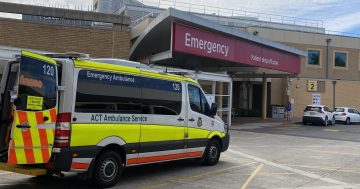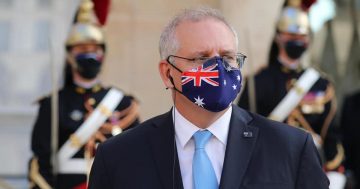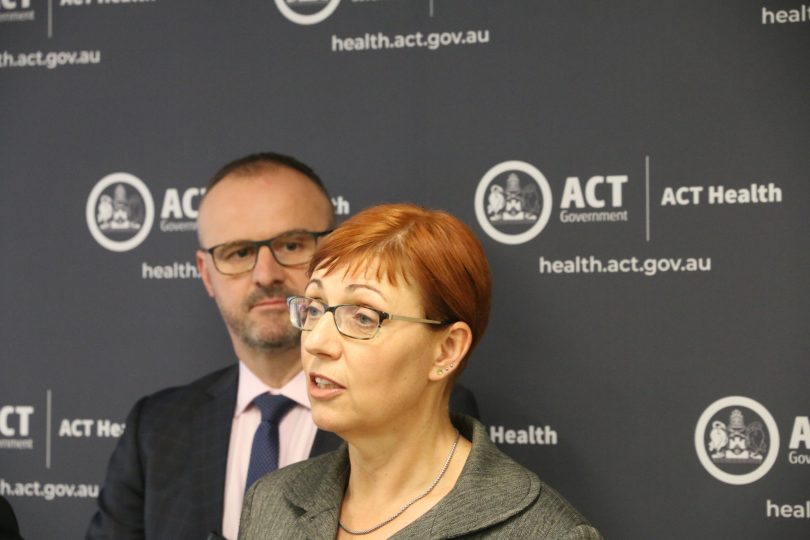
ACT Health Minister Rachel-Stephen Smith confirmed two new cases of COVID-19 in the ACT on Friday (20 March). Photo: Dominic Giannini.
Two men who recently returned to Canberra from overseas have returned positive results for COVID-19, but both individuals adhered to self-isolation principles, while an ANU student – who remains interstate – has also contracted the virus.
Close contacts of the first man, aged in his 70s, have all been contacted by ACT Health and are self-isolating while the Directorate is chasing up the close contacts of the second man, aged in his 50s.
Two international flights and one domestic flight were subject to potential exposure from the first man.
People in rows 42 to 46 on flight EY450 from Abu Dhabi to Sydney, which arrived at 6:00 am on 18 March, are considered close contacts, as are people in rows 3-7 on flight VA640 from Sydney to Canberra, arriving at 11:00 am on 18 March.
ACT Health is still trying to confirm the individual’s seat location on flight EY78 from Amsterdam to Abu Dhabi. Until more information is made available, any Canberran who was on the flight which arrived at 5:55 am local time on 17 March is considered to be a close contact.
Any Canberrans sitting in these specific rows are asked to call the Communicable Disease Control Section of ACT Health on 02 5124 9213 for further advice.
Because of the second man’s travel arrangements, no close contacts have been identified in transit.
Everyone else on these flights in other rows is not considered to be close contacts but should monitor their health until 31 March as a precaution. They do not need to self-quarantine.
From the confirmed case list, no one is in immediate danger although one older woman in her 70s is being monitored in hospital due to the extra risk imposed by her age.
Around 80 per cent of COVID-19 cases in Australia have originated from contact with an infected person overseas, Prime Minister Scott Morrison said as he announced a level four travel ban earlier this week, while any person who is not an Australian citizen or resident will not be allowed in as of 9:00 pm tonight (20 March).
Today Mr Morrison announced even stricter regulations around social distancing saying any non-essential indoor gatherings – which have already been limited to 100 people – can only have a ratio of one person to every 4 square metres.
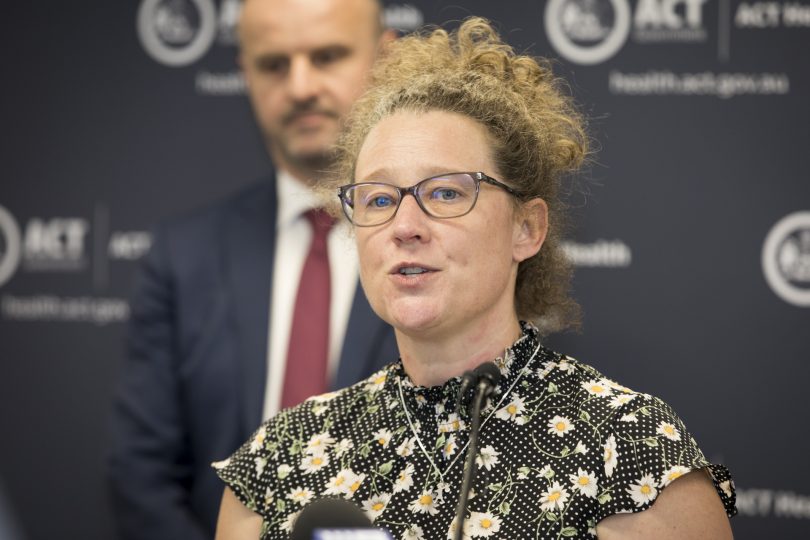
Dr Kerryn Coleman says ACT Health is tracking down all the close contacts of the two travellers. Photo: Region Media.
ANU vice-chancellor Professor Brian Schmidt also confirmed today that an ANU student not on campus has also tested positive for COVID-19.
“Our thoughts are with our student and their family and friends. The student has requested privacy at this time,” Professor Schmidt said.
“The student is being cared for by health authorities, and following their advice and directions. They have not been to campus or the ACT this semester.
“We have been in contact with the student and are providing additional support through the University’s Community Welfare team.”
ACT Chief Health Officer Dr Kerryn Coleman said that although none of the people with the virus in the ACT are ready to leave self-isolation, some are considered to have recovered.
The ACT has now tested more than 2,000 people, with 81 people being tested at the new drive-through clinic at EPIC. Around 150 people who showed up to EPIC have been turned away as they did not meet the testing requirements.
ACT Health Minister Rachel Stephen-Smith said that there were minimal waits at the walk-in test centre at Weston Creek and at the drive-through clinic at EPIC.
You should get tested for COVID-19 if:
- You’ve travelled overseas recently, and you develop symptoms of COVID-19 within 14 days of leaving an overseas country
- You have been informed by your local Public Health Unit that you have come into contact with someone who has COVID-19 and you develop symptoms of the disease within 14 days of your last contact with that person
- You’re a healthcare worker with direct patient contact, and have a fever and acute respiratory symptoms, even if you have not recently travelled or had contact with someone who has COVID-19.
The ACT’s public health services have tested more than 1800 people for COVID-19 since 10 February 2020 and in recent days have tested more than 200 people per day.
For all COVID-19 updates go to the ACT Health website.












